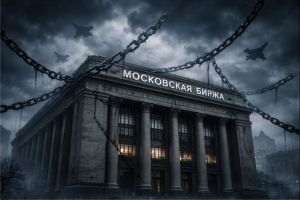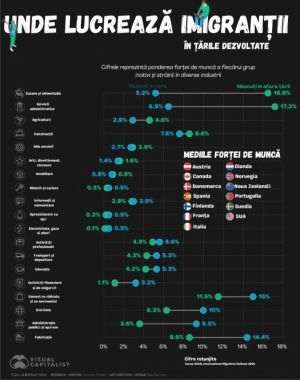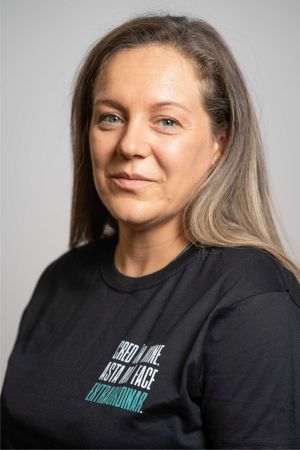OMV wants to reduce its dependence on the European market, between 2020-2025, and will focus on acquisitions in the Middle East and Asia Pacific, according to CEO Rainer Seele.
The Austrian group has a budget of 10 billion Euros for takeovers, until 2025.
According to the strategy for 2018-2025, the company wants to invest annually between 2 and 2.5 billion Euros in exploration, refining, processing and purification of crude oil and natural gas.
"Investments will go half to the upstream segment and half downstream", said Rainer Seele, who added: "I won't say in which countries, it is a secret, I have to surprise you in the future, don't I".
When asked if he was eyeing assets in Russia, the OMV CEO said: "I have learned over the years, over my trips in Russia, that you have to dance at one wedding only. That is why we are dedicated to the collaboration with Gazprom and we aren't looking at others. This is our partner and we will celebrate the anniversary of 50 years of partnership with Gazprom. We won't endanger our partnership with Gazprom. This is our unequivocal message".
He added: "I have said that the priority of the next chapter of our strategy is not Russia. That is what we have been focusing on in the last two years. The future project is aimed at the Middle East, and after that, the target is the Asia-Pacific region. Concerning Russia, we want to complete the output asset exchange by the end of the year and then focus on the Middle East".
OMV announced in 2016, the signing of a base agreement with Russian group "Gazprom" concerning the exchange of assets. According to the terms of the agreement, "Gazprom" will receive a stake of 38.5% of the shares of OMV (NORGE) AS, a company focused on the exploration and production of oil in Norway. In exchange, OMV will receive a stake of 24.98% in a project destined to developing blocks 4 and 5 of the Achimov formation, part of the oil and gas deposit of Uregoy, Siberia.
According to Seele, OMV wants to move the production capabilities closer to the attractive markets.
• OMV is expecting a significant gas output in the long run as well from the Neptun perimeter in the Black Sea
Oil company OMV is speaking, in its strategy until 2025, about a significant gas output in the long run as well, in the Neptun perimeter of the Black Sea, even though the final decision to invest in that perimeter will only be taken in the second part of this year.
OMV is the majority shareholder of OMV Petrom, a company which explores the high depth Neptun block of the Black Sea, together with the Americans of ExxonMobil.
"The output is expected to increase to 600,000 barrels a day until 2025 (compared to 348,000 barrels a day in 2017 - ed. note). This increase will be ensured by acquisitions in regions rich in reserves, where the median output costs does not exceed 8 dollars (per barrel- ed. note). A significant contribution in the long run is expected to come from the Yuzhno Russkoye, Akimov IV and V of Russia as well as from the Neptun offshore block of gas of Romania", a press release by OMV states.
When asked how the natural gas would get from the Black Sea to the European markets, given that the BRUA pipeline is not mentioned in the company's strategy, Manfred Leitner, downstream executive board member in the OMV group said that he can't say officially that Austria won't be a part of that project, but he mentioned that for the moment it has stopped in Hungary.
He said: "Of course, we aren't amused about that. We would have liked for it to reach Baumgarten (ed. note: Austria), through Hungary.
Currently, it seems that there are some ideas where we could bring in the natural gas directly to Baumgarten, but through Slovakia. From the point of view of Austrian consumers, this variant is a lot more expensive. Such a route is not the ideal connection".
He also added that it is unknown how the BRUA pipeline is going to be implemented: "There are going to be investments on the territory of Romania that would bring the natural gas to the border with Hungary. There is infrastructure. We will take some volumes. But I don't think that all the volumes that will be exported will go exclusively to the West. There are other options as well".
The project of the BRUA gas pipeline, which is planned to connect Bulgaria, Romania, Hungary and Austria, will not be completed in its current version, but there will instead be another project, BRUSA, which will also include Slovakia, Răzvan Nicolescu, senior-expert at Deloitte and former Energy minister said recently.
Răzvan Nicolescu also said that for Romania, it would be best for the gas volumes that will be extracted from the Black Sea to stay in the country, where they will be processed with high added value.
In a press conference of February 21st, Mariana Gheorghe, the CEO of OMV Petrom, said that there were talks concerning the sale in the neighboring countries of the natural gas that can be extracted from the Black Sea, but the company has lost the call for bids for the reserve capacity on the pipeline to Hungary.
Aside for the demand for natural gas from the countries neighboring Romania, also important is the transport capacity to these areas, it added.
"Currently we are carrying talks and analyzing sale scenarios on such neighboring countries, but they need to be calibrated with the availability for interconnectivity between Romania and the potential markets. We don't have any contract signed at the present point in time", the OMV Petrom official said.
She said that each of the two companies of the consortium, namely OMV Petrom and ExxonMobil, are having talks separately for the sale of the natural gas, as they are competitors on this market.
Also, Gheorghe confirmed the fact that OMV Petrom has lost the call for tenders by which it would have wanted to reserve transport capability on the Arad-Szeged pipeline.
"There was a call for tenders auction for the right to transport on the Arad-Szeged connection, in which there were several participants. The total capacity was 4 billion cubic meters on the export relation. We have participated as well, but we didn't win. It is not public who won, we just read the news that there are three Hungarian firms that won", the CEO said.
Lăcrămioara Diaconu, the head of the division in charge of the natural gas department of the company, said that OMV Petrom is reviewing other transport routes, such as the ones in Northern and Southern Romania, meaning towards Ukraine, the Republic of Moldova, Bulgaria and Turkey.
On February 5th, Hungarian press agency MTI reported that several companies in Hungary have reserved the entire capacity of 4.4 billion cubic meters of the gas pipeline that connects Romania and Hungary, quoting Hungarian foreign affairs minister, Peter Szijjarto.
According to him, starting with 2022, large quantities of natural gas extracted from the Black Sea will be deliverable to Hungary.
The BRUA project is a new project for a European gas transport corridor, which would have a total length of 1,318 kilometers and offer a better interconnection between the countries found on its route, to support the energy market allowing new ties with major infrastructure projects, such as the Trans-Adriatic Pipeline (TAP) gas pipeline and the Trans-Anatolian Natural Gas Pipeline (TANAP), other natural gas hubs in Central and Eastern Europe and the future offshore production installations in the Black Sea.
Also, the project is intended to ensure a deeper integration of the European natural gas markets and will increase the security of the natural gas supply.
Transgaz has received funding for this project from the European Union, which gave a grant of 179 million Euros, as well as loans from the European Investment Bank (50 million Euros) and the EBRD (60 million Euros).
• Investments of one billion Euros, over the next seven years, in the Schwechat, Burghausen and Petrobrazi refineries
OMV officials have also stated that they want to invest in the coming seven years one billion Euros in the three refineries of the group - Schwechat, Burghausen and Petrobrazi, in order to double the refining capacity in the long term.
The Austrian company anticipates an increase in demand for natural gas, as the European market distances itself from coal.
Thus, the sales of natural gas of the company could increase to over 20 billion cubic meters by 2025, and OMV hopes to cover 10% of the German market.
"Other plans include the delivery in the European transport network of additional natural gas quantities from Norway and Romania. The construction of the Nord Stream 2 pipeline has a strategic importance for OMV, meaning it will secure the fueling with a consistent volume of natural gas, in the long term, to Europe, in association with Central European Gas Hub of Baumgarten and the pipeline network of Gas Connect Austra (the national transporter - ed. note) the company's document states.
The company's strategy also concerns an increase in the base operating profit of OMV by 70% in the next coming years, based on the international takeovers, the expansion of its refining operations and the future cost cuts.
OMV reported that intends to reach an EBIT of over 5 billion Euros (excluding special elements) of over 5 billion Euros by 2025.
• Rainer Seele, OMV: "It won't be long before we pay royalties based on the price on the Moon"
The principle of setting the price of natural gas royalties based on the Austrian prices is nonsensical, OMV CEO Rainer Seele said on Tuesday. He added, without providing numbers about the additional costs for the company, following the new formula set by the ANRM: "I don't know why the Romanian regulator has chosen the price in Vienna. Why not the price in Asia, because it's higher anyway? I don't know why the (reference ed. note) price is tied to an indicator from outside the country. At this rate it won't be long before we pay based on prices on the Moon".
In his opinion, the normal thing would be for producers to pay royalties based on the price they charge for the natural gas they extract.
On February 7th, the National Mineral Resources Agency (ANRM) has issued an order, according to which the reference price for natural gas mined in Romania in order to set the royalties, will be calculated based on the trading prices on the CEGH Vienna hub.
























































